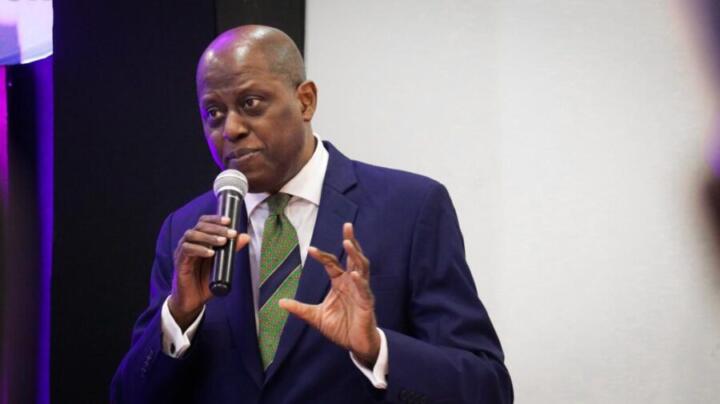Nigeria appears to be making progress toward its goal of reducing inflation to 15 percent, as recent data from the National Bureau of Statistics (NBS) show a sustained moderation in price pressures across key sectors of the economy. The development has been met with cautious optimism among economists, who acknowledge the government’s progress but warn that structural challenges could still hinder long-term price stability.
According to the NBS September 2025 report, Nigeria’s headline inflation rate slowed for the third consecutive month, dropping to 18.02 percent from 18.64 percent recorded in August. This marks the lowest level since early 2023 and signals the impact of tighter monetary and fiscal policies introduced by the Central Bank of Nigeria (CBN) and the Federal Government.

Analysts attribute the decline to a combination of improved food supply, easing transportation costs, and stronger exchange rate management that has reduced import-related inflation. The report indicated that both food and core inflation indexes recorded declines, reflecting a more stable price environment.
The Federal Government has maintained that achieving a 15 percent inflation rate by 2026 remains a key economic objective under its medium-term fiscal strategy. The administration’s economic team, led by CBN Governor Dr. Olayemi Cardoso, has implemented several coordinated measures to address inflationary pressures, including curbing fiscal leakages, strengthening monetary tightening, and improving agricultural productivity.
Cardoso noted that the CBN’s recent reforms in the foreign exchange market and efforts to stabilize the naira have begun yielding results. “We are seeing the early signs of stabilization. Our monetary policy stance, combined with fiscal discipline, is gradually bringing inflation under control,” he said.
He emphasized that the CBN will continue to adopt a cautious approach by maintaining higher interest rates in the short term to keep inflation expectations in check while supporting productive sectors with targeted interventions.
Economists, however, are divided on the sustainability of the current inflation slowdown. Dr. Aisha Mohammed, an economist at the University of Lagos, described the latest figures as encouraging but warned that Nigeria’s economy remains vulnerable to shocks, particularly from global oil price volatility and insecurity in agricultural regions.
“Reaching 15 percent inflation by next year is possible, but it depends on how effectively the government manages energy costs, supply chain disruptions, and the exchange rate,” she said. “The fiscal side must complement the monetary side — otherwise, we could see inflation rise again.”
Similarly, the Chief Executive of the Centre for the Promotion of Private Enterprise (CPPE), Dr. Muda Yusuf, noted that while the reduction in inflation is a welcome development, the cost of living remains high for most Nigerians. He urged the government to prioritize measures that enhance domestic production and reduce reliance on imports.
“The government’s inflation target is achievable only if we address structural bottlenecks such as poor infrastructure, high energy costs, and insecurity in the food-producing regions. Monetary tightening alone cannot deliver sustainable price stability,” Yusuf stated.
The government’s reform efforts, including the removal of fuel subsidies and the unification of exchange rates, initially triggered a sharp rise in inflation in 2023 and early 2024. However, recent improvements in fiscal management and the gradual recovery of the naira have helped to ease price pressures.
Food inflation, which accounts for over 50 percent of Nigeria’s consumer price index, declined from 24.7 percent in August to 23.8 percent in September, driven by increased local food production and reduced logistics costs. The government’s renewed investment in agriculture, supported by credit facilities and mechanization programmes, has improved output in key staples such as rice, maize, and cassava.
Meanwhile, transport inflation fell to 17.4 percent, aided by improved fuel supply and stable petrol prices following the Dangote Refinery’s entry into the domestic fuel market. Analysts say this has contributed significantly to easing inflationary pressure, particularly for logistics and manufacturing sectors.
However, some analysts have cautioned that the coming months could test the resilience of the current trend, especially as the festive season approaches, which typically drives up consumer demand and prices. They also pointed to potential external risks, including global commodity price fluctuations and exchange rate volatility.
Despite these concerns, business groups have expressed optimism about the government’s approach. The Manufacturers Association of Nigeria (MAN) stated that improved macroeconomic coordination and declining inflation could restore confidence in the industrial sector, attract foreign investment, and boost employment.
“Lower inflation means reduced costs for manufacturers and better planning for businesses. We are beginning to see early signs of recovery, but it is crucial that the government sustains these policies,” MAN President Otunba Francis Meshioye remarked.
Financial analysts also suggest that if the current trajectory continues, Nigeria could experience single-digit inflation by 2027, provided fiscal and monetary discipline is maintained.
As Nigeria inches closer to its 15 percent inflation target, the consensus among economists is clear: the current progress represents a positive shift in the right direction, but sustained results will require a long-term commitment to reform, production growth, and effective policy coordination.
For now, the country’s latest inflation data offers cautious optimism — signaling that Nigeria’s macroeconomic stabilization efforts may finally be beginning to pay off.
Support InfoStride News' Credible Journalism: Only credible journalism can guarantee a fair, accountable and transparent society, including democracy and government. It involves a lot of efforts and money. We need your support. Click here to Donate
